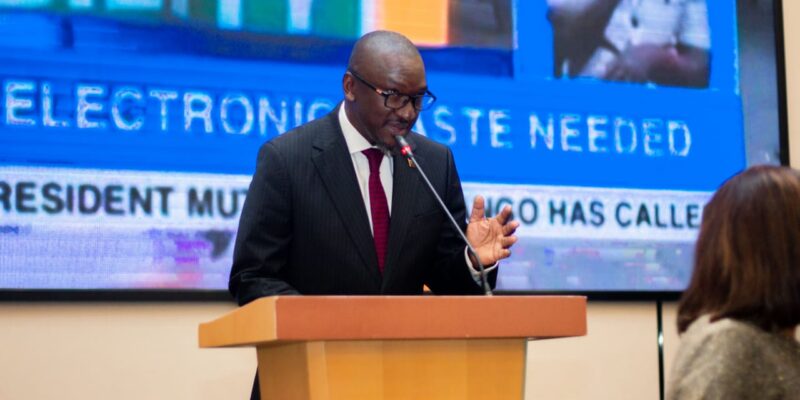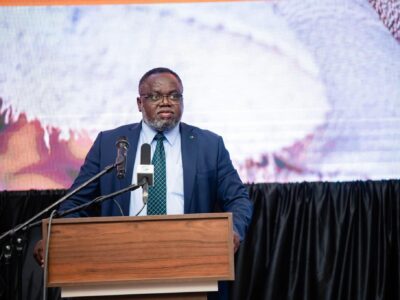Government has express concern that the landscapes are being degraded at alarming rates, according to Green Economy and Environment Minister, Collins Nzovu.
Nzovu said the degradation of landscapes was hindering all forms of socio economic development efforts.
He regretted that land degradation, drought, climate change and loss of biodiversity had become the most pressing environmental problems not only in Zambia but, regionally as well.
He said the prevailing environmental problems had exacerbated food, water, income and nutrition insecurity, as well as the loss of productivity while increasing the disease burden.
He said this during the signing ceremony of a Memorandum of Understanding (MoU) between the Ministry of Green Economy and Environment and World Wide Fund for Nature (WWF) in Lusaka on Tuesday.
The MoU will allow WWF implement a project dubbed sustainable Luangwa which seeks to protect the Luangwa River and its catchment area from all forms of degradation.
Read more: Govt tasks institutions to think environmental sustainability in project execution
“Healthy landscapes are fundamental to the health of life on earth, therefore, maintaining their integrity assures us of sustainable food production, good air and water quality, abundant water, nutrient cycling and productive lands and soils, as well as rich biodiversity which we depend on for our very own existence.
“However, government is concerned that our landscapes are being degraded at alarming rates,” Nzovu said.
He said without a long-term solution to the environmental problems, the country risked increasing food shortages, rising poverty, and increased migration.
At the same function, Tracy Smith, WWF United States GEF agency project director said her agency was committed to supporting the Ministry of Green Economy and Environment and WWF Zambia with the execution of the sustainable Luangwa project.
“This partnership brings us together as a global family and we are looking forward to working together, collaborating on the solutions we will need to tackle the many challenges that we will face, while learning from each other’s experience.
“The WWF US GEF Agency will provide the fiduciary and technical oversight on behalf of the GEF Secretariat and the GEF Trustee and make sure that this project complies with all necessary policies,” Smith said.
The project will be implemented in four wards of Mafinga district.
Muchinga province permanent secretary Henry Mukungule, said the natural environment in the province like other parts of the country had continued to suffer degradation due to adverse human activities threatening biodiversity, water quality and flow.
Mukungule said the MoU signified the commitment of Muchinga province to the attainment of integrated natural resources management and sustainable environmental management.
“The province will continue with strides aimed at improving the lives of our people through sound environmental management. I therefore urge all of you to continue ensuring that we protect our environment and natural resources,” he said.
Meanwhile, WWF Country Director Nachilala Nkombo, said the MoU signified the strong partnership around that existed between Government and WWF around the urgency to protect Zambia’s critical water resources.

World Wide Fund for Nature Country Director. Nachilala Nkombo.
Nkombo said this project was funded by WWF United States of America under GEF because it provides not only local or national benefits but global benefits.
“Seeing the sustainable Luangwa Project come to fruition is an important milestone because it is as result of the hard work that had been put in and because of the vast knowledge that we have gathered in the many years that we have been working in the Luangwa landscape. Its global significance and value can never be underestimated,” she said.
WARNING! All rights reserved. This material, and other digital content on this website, may not be reproduced, published, broadcast, rewritten or redistributed in whole or in part without prior express permission from ZAMBIA MONITOR!











Comments